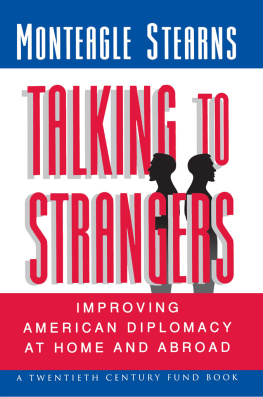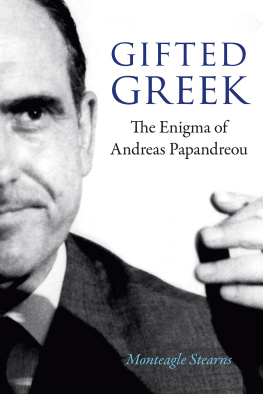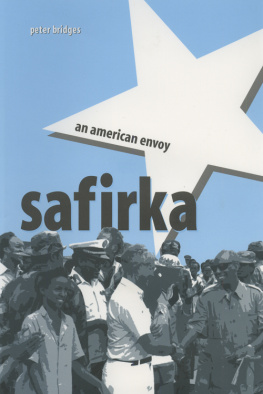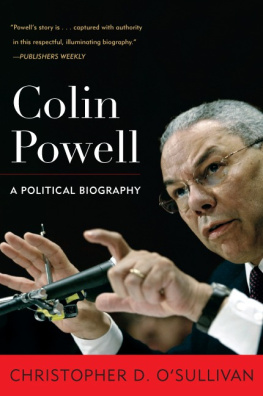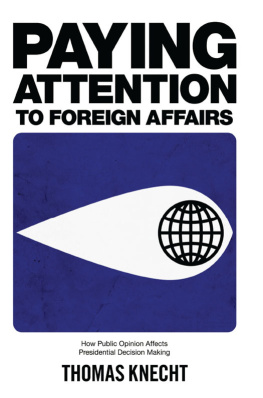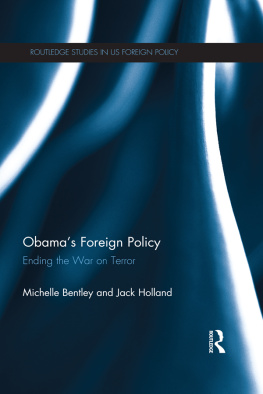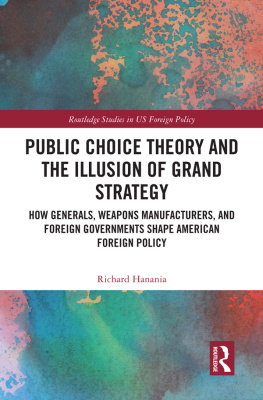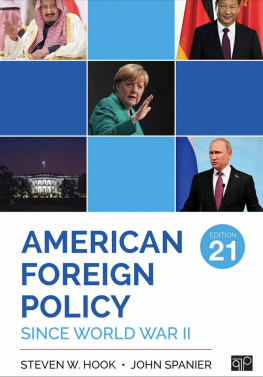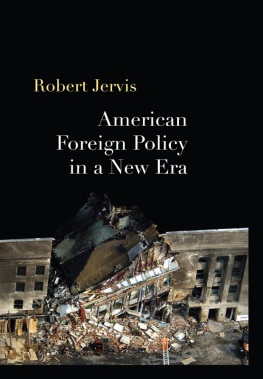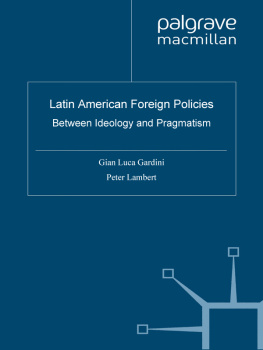The Twentieth Century Fund sponsors and supervises timely analyses of economic
policy, foreign affairs, and domestic political issues. Not-for-profit and nonpartisan,
the Fund was founded in 1919 and endowed by Edward A. Filene.
BOARD OF TRUSTEES OF THE TWENTIETH CENTURY FUND
| Morris B. Abram, Emeritus | Lewis B. Kaden |
| H. Brandt Ayers | James A. Leach |
| Peter A. A. Berle | Richard C. Leone, ex officio |
| Alan Brinkley | P. Michael Pitfield |
| Jos A. Cabranes | Richard Ravitch |
| Joseph A. Califano, Jr. | Arthur . Schlesinger, Jr., Emeritus |
| Alexander Morgan Capron | Harvey I. Sloane, M.D. |
| Hodding Carter III | Theodore C. Sorensen, Chairman |
| Edward E. David, Jr., Emeritus | James Tobin, Emeritus |
| Brewster C. Denny, Emeritus | David B. Truman, Emeritus |
| Charles V. Hamilton | Shirley Williams |
| August Heckscher, Emeritus | William Julius Wilson |
| Matina S. Homer |
Richard C. Leone, President
Copyright 1996 by The Twentieth Century Fund, Inc.
Published by Princeton University Press, 41 William Street, Princeton, New Jersey 08540
In the United Kingdom: Princeton University Press, Chichester, West Sussex
All Rights Reserved
Fourth printing, and first paperback printing, 1999
Paperback ISBN 0-691-00745-4
The Library of Congress has cataloged the cloth edition of this book as follows
Steams, Monteagle, 1924
Talking to strangers : improving American diplomacy
at home and abroad / Monteagle Steams
p. cm.
A Twentieth Century Fund book.
Includes bibliographical references and index.
ISBN 0-691-01130-3
eISBN 978-1-400-82846-3
1. United StatesForeign relations1989-2. United StatesRelations
Foreign Countries. 3. United StatesForeign relations administration. 1. Title.
E840.S715 1995
327.73dc20 95-24342
http://pup.princeton.edu
Chapter 1 contains material originally published in a different form in
the July 1989 issue of World Monitor magazine under
the title Managing the 90s.
R0
Foreword
AFTER five decades, the United States has realized the central goals of its foreign policy: the defeat of Soviet communism and the triumph of democratic capitalism. For the first time in its history America stands as the predominant and unchallenged power on the planet. The costs of the cold war were immenseindeed, the current national convulsions about the federal debt are, in a sense, a past-due bill for the trillions spent on the cold war military establishment. But the triumph of American ideas and power has not been an occasion for dancing in the streets. Instead, the nation seems uncertain of whether it is on course at all, questioning the value of mixed capitalism as an economic system and even the legitimacy of the republican form of government.
In this context, perhaps it is not surprising that those who did the patient, hard work of advancing the American cause in international affairs have not been the subject of parades and awards. Instead, the foreign policy establishment sometimes seems more like a tempting target of political opportunity than an exemplar of public service. Part of the problem is that the end of the struggle with the Soviet Union has muddied the crystal clarity of Americas mission around the globe. Today, our interests, though far-flung, are more connected to domestic affairs; they are more narrowly security oriented and more explicitly economic than at any time since before World War II.
Despite our enjoyment of relative prosperity, public discourse is filled with disquiet about the state of the nation. Participation in community affairs is down, and trust in leaders of any kind is perhaps at an all-time low. Government officials especially are seen by many as a major obstacle to full realization of the American Dream.
When this view of the nation is combined with our unique and persistent notion that in the public sector professionalism is of limited use, or even likely to have pernicious effects, the education and training of our representatives for service abroad is bound to suffer. The long-term implications of this eccentricity are too important to be brushed aside. If America is to maintain its effectiveness in international affairs, we need an effective cadre of Foreign Service officers.
With that necessity in mind, the Fund turned to Monteagle Stearns, former United States ambassador to Greece and to the Republic of the Ivory Coast. His distinguished career in the Foreign Service provides a foundation of experience that informs the thoughtful discussion in this work of the place of diplomacy and the diplomatic corps in promoting the interests of the United States.
Stearns traces the development of American diplomacy from the early days of the Republic, a tradition that glows with names like Ben Franklin, Thomas Jefferson, and Charles Francis Adams. Indeed, part of Stearnss story is how seldom such eminence is recognized in the generations that follow. Still, the foundations of a distinctively American approach to diplomacy emerge with vivid clarity. These insights sharpen Stearnss observations concerning the development and implementation of more recent foreign policy. And they ensure that his prescriptions for diplomacy in the post-cold war era are firmly grounded in the realities of the American experience.
Of course, steady, patient diplomacy has never been likely to be confused with either political heroism or media celebrity. Stearns has much to say about what the reality of our media-driven democracy means for the lives and careers of those who actually serve in the Foreign Service. The way we choose, train, promote, reward, and punish our foreign policy professionals has, like the policies they advance, a special American flavor. Indeed, any program for upgrading the diplomatic corps or enhancing its influence makes sense only if it fits the particular, rough-edged version of democratic capitalism of the United States.
Ensuring that this nation has the talent and expertise it needs to secure our future is a subject that should be of great concern to all Americans. The Fund has explored the problem of recruiting and retaining high-quality government managers in The Governments Managers, a report on the senior executive service, and is currently looking at the presidential appointment process.
The force of Monteagle Stearnss arguments, as well as the quality of his past contributions, requires the attention of those who care about American effectiveness in international matters. On behalf of the Trustees of the Twentieth Century Fund, I thank him for his efforts.
Richard C. Leone, President
The Twentieth Century Fund
May 1995

